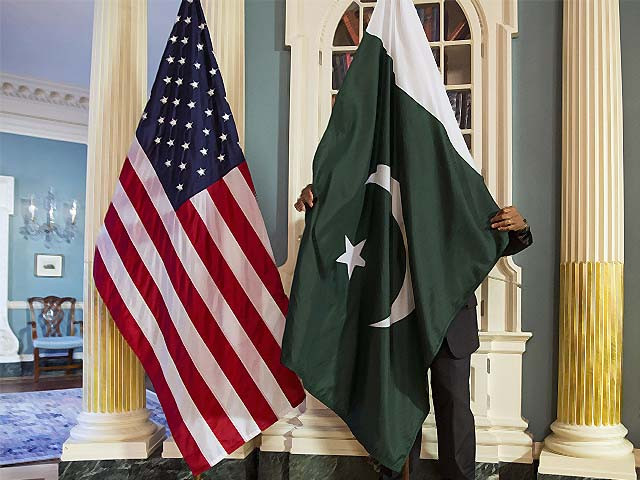By: Raja Furqan Ahmed
Globalization term used to describe the growing interdependence of the world’s economic, social, and technological exchange within the framework of capitalism in the cross border. It also refers to the integration of markets in the global economy, leading to the increased interconnectedness of national economies. Countries have built economic partnerships to facilitate these movements over many centuries but the term gained popularity after the Cold War in the early 1990s, as these cooperative arrangements shaped modern everyday life. Thomas Friedman one of the American political writers stated that ‘Globalization is a system that replaced the Cold War system.’ The wide-ranging effects of globalization are complex and politically charged. As with major technological advances and development, globalization benefits society as a whole, while also harming certain groups.
Globalization has also created new jobs and economic growth through the cross-border especially the flow of goods, capital, and labour but on the other hand; this growth and job creation is not distributed evenly across industries or countries. If we look at the development of industries in certain countries, such as textile manufacturing in the US or corn farming in Mexico, have suffered severe disruption or outright collapse as a result of increased international competition. About the objectives and goals of globalization we can see that this phenomenon is idealistic, as well as opportunistic, but the development of a global free market has also benefited large corporations based in the Western hemisphere. Its impact remains mixed for workers, cultures, and small businesses around the globe, in both developed and emerging nations. Globalization has increased the production of goods and services throughout the world. As there are numbers of driving forces which play a key role in globalization such as Technology, the principal drivers of globalization. Advanced information technology has transformed our economic life as well as in businesses sector since developed new tools to cope new opportunities, including faster and more informed analyses of economic trends around the world and communication with partners. Thomas Friedman has said that today globalization is “farther, faster, cheaper, and deeper.”
Low barriers to trade and investment drive globalization significantly. Many of the world trades are currently done through free trade, bilateral, and multilateral agreements. Interestingly, countries which were very hostile or unfriendly to foreign investment a few years ago, are inviting other countries for inward foreign direct investment (FDI). China is a very good example in this regard. Communication is faster and more convenient due to the Improvement in technology. For example, we can communicate through telephone, e-mail, 3G video conferencing easily, also satellite allows messages to send out and receive at the same time. Improvement in transportation technology in air, sea and rail systems to accelerate the globalization activities. Also, the decline in transportation costs and less time needed to travel from one place to another. The high-tech transport system has reduced the travelling time and increases the efficiency of transferring goods, thus boost globalization. For example, 19th century: use the steam engine for transport; 20th century: use commercial jet aircraft, large ocean-going vessels and containerization. Globalizations have many advantages but there are few disadvantages such as it really affects National Security of a State. National security faces both benefits and risks from globalization. The consequences of globalization for national security, however, need not be limited to war or insurgency, but include as well how forces of globalization affect the balance of power, change the offence-defense balance or other factors that might affect the security dilemma and the likelihood of war, or transform the ability of the state to defend its own interests. Developments such as decreased defense budgets, increased military use of civilian products and technology, privatization of defense R&D, consolidation of defense industries, and increased military use of sophisticated information systems are the results of decisions based on changes in the foreign threat, technological innovations, and domestic political and economic changes. Globalization and other developments affecting the defense industry and government research, acquisition, security, and export control policies have shaped a security environment sharply different than that of the Cold War. Globalization may actually reduce the risks of conflict among closely connected nations. Economic integration probably contributes to international political stability by increasing economic interdependence and helping the spread of democracy. In conjunction with related defence developments, globalization has contributed to enhanced U.S. military capabilities through the efficient application of commercial technologies and commercial services and has improved interoperability of allied forces.
If we see Globalization in the Political Context, the role of the US as Unipolar Power remained important. The forces of globalization such as technology may make it much easier to transmit information, or more difficult to control capital flows, but if the world’s only superpower had different policy preferences, say those of caution, closure, and control, then the pressures of globalization, while still present and powerful, would not be as pervasive. Globalization also plays its role to minimize the role of the flow of capitalism. As there are mainly three ways in which national security affected such as it affects state capacity and autonomy that is, the relative power of the state vis-à-vis non-state actors, social forces, and market pressures. It also affects the balance of power between states, because even if changes in the system left each state absolutely less able to advance its interests, there would still be a reshuffling of relative capabilities. And by creating new sources of conflict between states, new opportunities for entrepreneurs of political violence, and by reshaping the costs and benefits of both warfare and conquest, the forces of globalization can recast the nature of the armed conflict.
The writer is a freelance journalist based in Islamabad, Pakistan. He tweets @furqanraja1122








